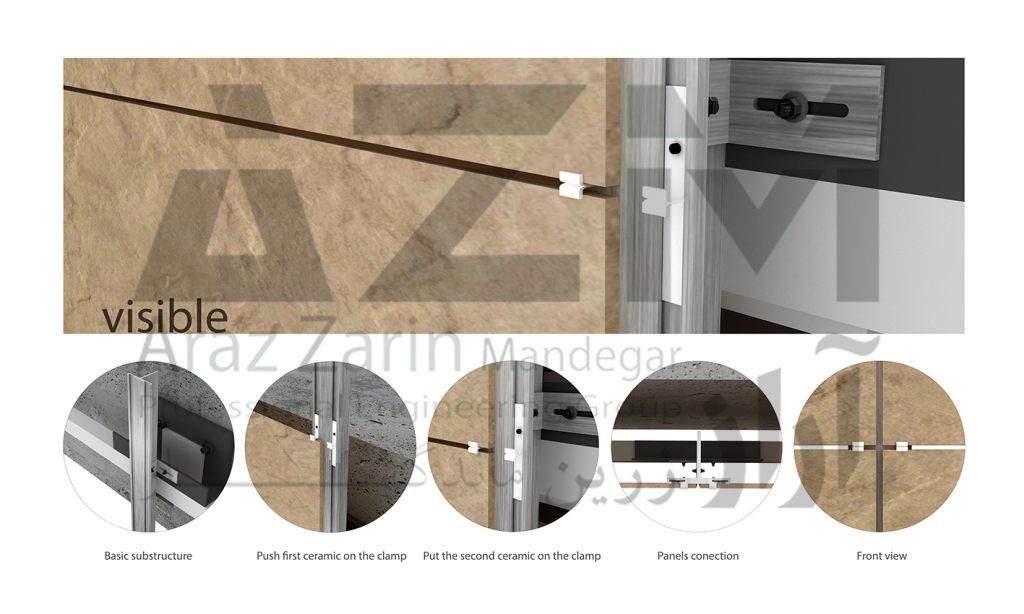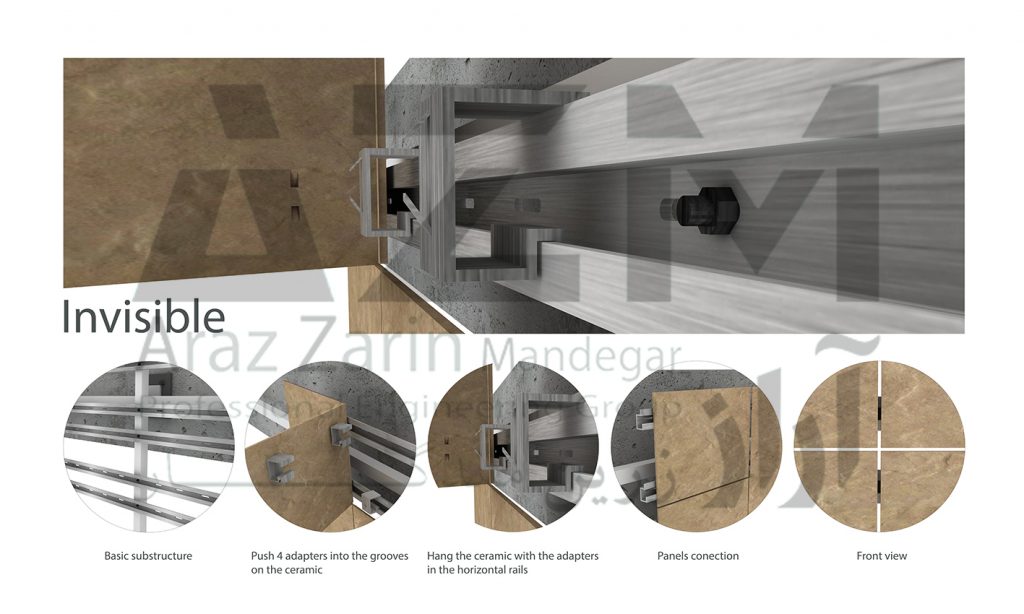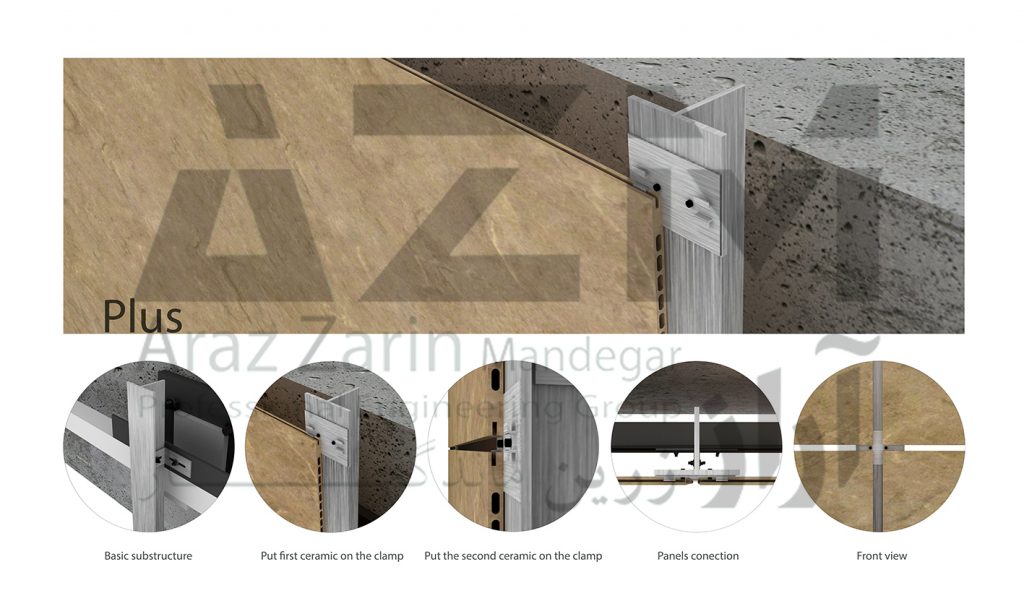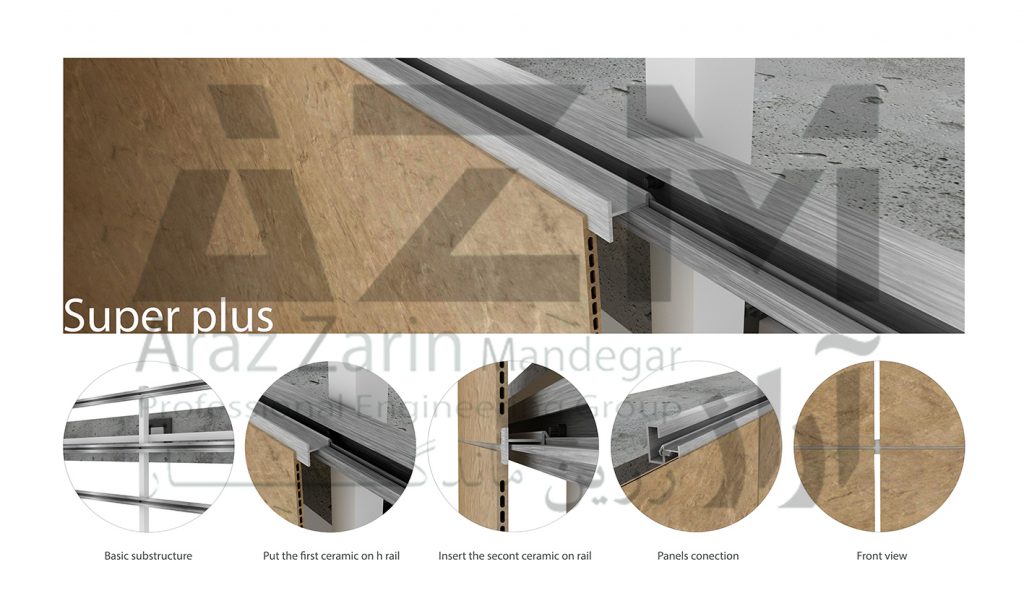- Ask a question
- 02188621961
- 02188617645
- a_zm@Mail.com
Dry Fecade
curtain wall
June 21, 2017Spider
June 21, 2017Dry Fecade
In the dry facade system to connect rock, bricks, ceramics and …. Unused metal is used in one another, and metal accessories such as rails and aluminum fittings are used, and in fact a curtain wall that is installed far ahead of the walls of the loader and creates a double-sided view.
Features of the dry facade implementation method
Saving time
– Coordinating the behavior of materials against temperature changes
– Building Engineering Design and Reducing Materials Rollover
– Industrial production of consumer building materials
– Adjustment and regularity
– Reduce the cost of repairs, increase shelf life and the possibility of recycling materials
– Weight loss and compliance with earthquake regulations
Absorption of water near zero
– Strength and impenetrability
– Insulation against moisture, sound and heat
Dry ceramic types
Dry ceramics are produced in many different types, but ceramic porcelain and ceramic clay or trachea are two common examples of this material, which are used in modern views as a dry installation with a substructure. Porcelain ceramics have higher advantages over non-porcelain ceramics.
Methods of execution
Visible method
In this way, dry ceramic tiles are fitted with clips on aluminum reinforced rails, and these clips remain in the foreground, and are therefore referred to as this method.

An invisible or keil system
In this method, firstly, on the back of the ceramics, the automatic shaving mechanism is fitted with slots in two reverse directions, and then the clamps by the bumps that are firmly attached to them through the special adhesive within these grooves. The ceramics are then mounted on the rails through the clamp and placed in place by means of a screw fitted on the clamp.

Plus method
This is a special method for double-glazed ceramics, metal clip parts are mounted on vertical aluminum railings and fit into ceramic grooves. So the clips are not seen on the front.

Super Plus Method
This method is also suitable for double-glazed ceramics, in which the horizontal profile is positioned horizontally within these grooves. And this profile itself is hinged to a horizontal aluminum rail, which is the main structure.

